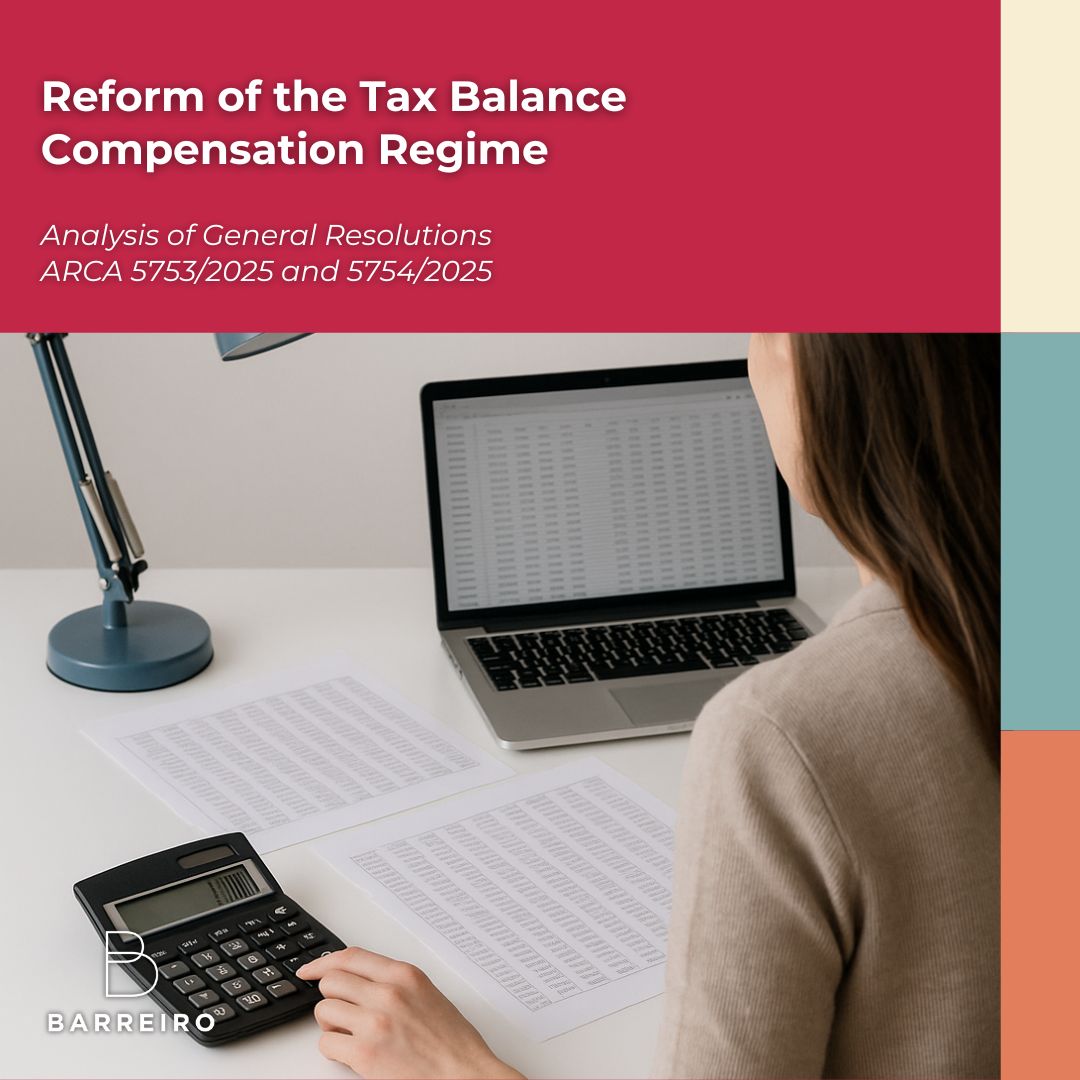Reform of the Tax Balance Compensation Regime
Reform of the Tax Balance Compensation Regime: Analysis of ARCA General Resolutions 5753/2025 and 5754/2025
The Tax Collection and Customs Control Agency (ARCA), through General Resolutions 5753/2025 and 5754/2025, has established a new comprehensive regime for the compensation of tax obligations. These rules replace and update the existing regulatory framework, introducing significant changes at the subjective level (eligible parties), procedural level (digital management, controls, documentation), and temporal level (use of balances depending on the statute of limitations).
1. Key Features of General Resolution 5753/2025
a. Expansion of Eligible Parties: Inclusion of Substitute Taxpayers
One of the main innovations is that not only direct taxpayers may offset their tax obligations with available tax credits, but also substitute taxpayers, as contemplated in subsection 2 of Article 6 of Law 11,683, even if the tax credits come from different taxes.
The regulation confirms that what matters is the identity between the credit holder and the taxpayer obligated to pay, even when the latter acts as a substitute taxpayer. This definition is based on an opinion issued by the National Tax Directorate, which provided the legal foundation for the measure.
b. Procedure and Conditions for Compensation
The new scheme introduces the following rules:
-
Origin of credits: They must derive from tax assessments, tax returns (original or amended), or final administrative or judicial resolutions.
-
Electronic management: Applications are submitted through the “Tax Accounts” service on ARCA’s website, selecting the “Compensation” option.
-
System controls: Viability is automatically verified online. If approved, a form is issued with the note “Automatic Compensation.”
-
Observations and inconsistencies: In case of issues, taxpayers may resort to the “Digital Filings” service, attaching supporting documentation.
-
Legal effects: Applications take effect from the date of filing, provided legal requirements are met. However, filing does not prevent ARCA from exercising audit powers or from rejecting the request if applicable.
c. Tax Scope and Repeal of Previous Rules
The resolution extends the regime to Internal Taxes, both under Law 3,764 (as amended in 1979) and Law 24,674 and its subsequent reforms.
At the same time, it unifies the framework by repealing General Resolutions 1,658, 3,175, 4,334, and 4,521.
d. Entry into Force
The resolution entered into force on September 6, 2025. From that date, all compensation applications must comply with this new scheme.
2. Time Limits: General Resolution 5754/2025
In addition, General Resolution 5754/2025 introduced a temporal criterion for the use of tax credits:
Balances arising from tax returns with due dates prior to January 1 of the fifth year preceding their intended use may only be applied if ARCA identifies them prima facie as valid, in line with the five-year statute of limitations set forth in Article 56 of Law 11,683.
3. Practical Implications
-
Greater flexibility: Substitute taxpayers now have a more efficient tool to settle tax obligations.
-
Digitalization: The automation of the procedure reduces delays and in-person filings.
-
Operational risk: Taxpayers must monitor the “useful life” of their tax credits, as older balances could become unusable if not applied in time.
-
Regulatory unification: The repeal of scattered resolutions provides legal certainty and predictability.
